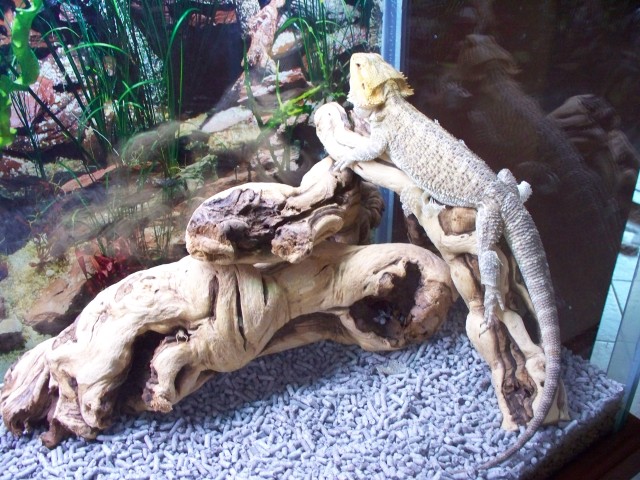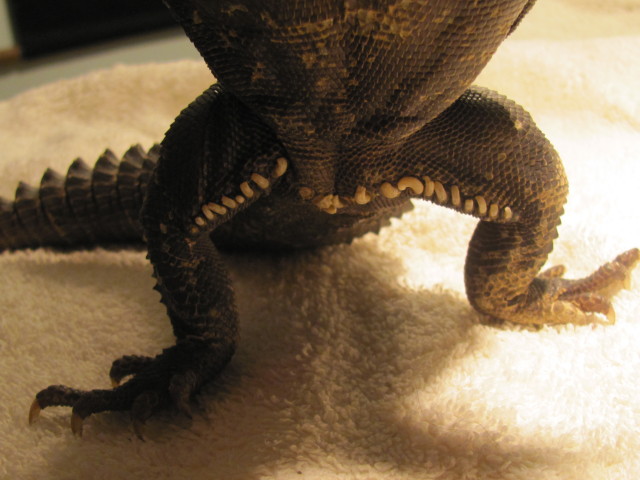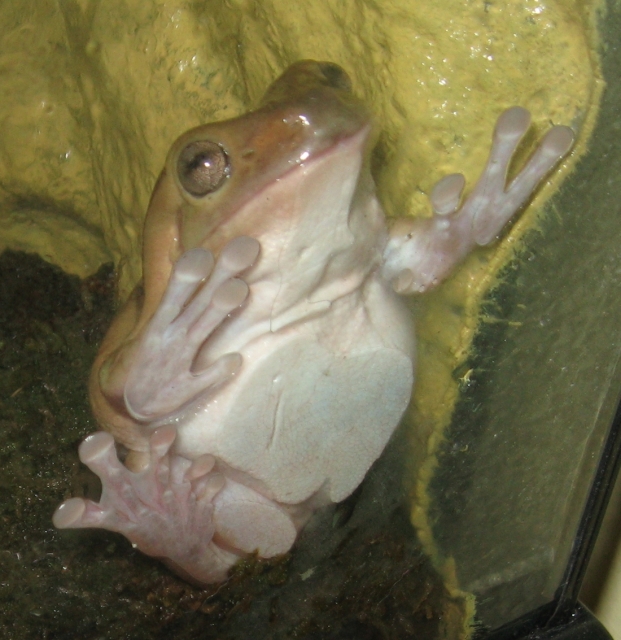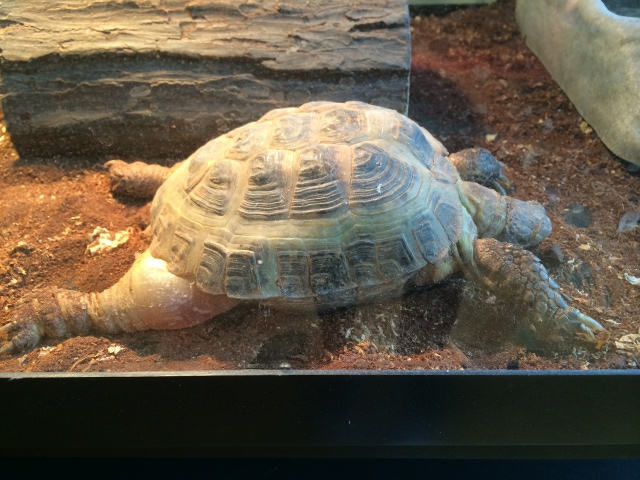QuestionHi, I just purchased my dragon from a large name pet store. when i got home
i set up the habitat and started to research to make sure everything was right.
it was then that i read so much information about the dragons being loaded
with parasites, and it being very common! are there other things i can look for
that would hint at parasites. or is taking a stool sample to the vet the only
way to know. I'm very worried. Do i need to dump out his whole habitat?!
also are these parasites contagious to my other reptiles? Also, i keep reading
that they need a tall habitat. i have the exact fish tank in the picture- 50
gallons, set up so that there is a cave at one end that makes a second level,
and large tree branches start from the middle stretch all the way to that
second level provided by the "caves" top piece which is half way up the tank. i
dont know if that makes any sense but im trying to ask if that is enough of a
tree structure for them, as the tank is longer than it is high.
AnswerHello Cindy,
Yes, most mountain horned dragons are wild caught which does cause their worm & parasite levels to be pretty high.
If his color is off, his stools are runny & smelly, or he has no appetite those are pretty strong indicators of parasites. A fecal sample is the best way to determine if he does have parasites.
How long have you had him? Usually, they are pretty stressed for the first couple of weeks after they are brought into a new home.
Well, they do like to climb so they need their habitat to be taller than longer. However, if he is small, that will do for right now. You can change it out later on.
Do you have a picture of his tank you could post?
What are the temperatures in the tank & what type of thermometer do you use? Are you going to be using a UVB light for him as well?
Parasites are infectious to other reptiles yes, but only if you house them together & or they come into contact with the feces & each other.
Is he eating anything right now?
Tracie

 Possible blockage in Bearded Dragon
QuestionBearded Dragon (Pogona
QUESTION: Do you
Possible blockage in Bearded Dragon
QuestionBearded Dragon (Pogona
QUESTION: Do you
 Uro parasite??? Please help
Questionloops
QUESTION: Hi Donna,
Ive had my u
Uro parasite??? Please help
Questionloops
QUESTION: Hi Donna,
Ive had my u
 dumpy tree frog eating habits
QuestionAre her feet normal?
QUESTION: I have ba
dumpy tree frog eating habits
QuestionAre her feet normal?
QUESTION: I have ba
 Chinese Water Dragon Not Opening Eyes
QuestionQUESTION: Hello, my name is Morgan and Im an ow
Chinese Water Dragon Not Opening Eyes
QuestionQUESTION: Hello, my name is Morgan and Im an ow
 My tortoise
Question
Tortoise
My tortoises back legs have be
My tortoise
Question
Tortoise
My tortoises back legs have be